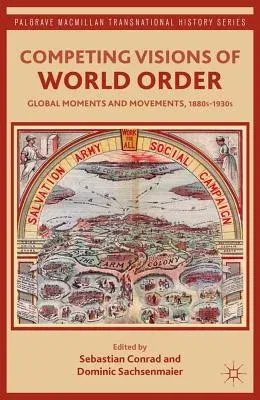Sebastian Conrad
(Author)Competing Visions of World Order: Global Moments and Movements, 1880s-1930s (2007)Paperback - 2007, 21 June 2012

Qty
1
Turbo
Ships in 2 - 3 days
In Stock
Free Delivery
Cash on Delivery
15 Days
Free Returns
Secure Checkout
Part of Series
Palgrave MacMillan Transnational History
Print Length
267 pages
Language
English
Publisher
Palgrave MacMillan
Date Published
21 Jun 2012
ISBN-10
1137015233
ISBN-13
9781137015235
Description
Product Details
Book Edition:
2007
Book Format:
Paperback
Country of Origin:
US
Date Published:
21 June 2012
Dimensions:
21.34 x
13.97 x
1.78 cm
ISBN-10:
1137015233
ISBN-13:
9781137015235
Language:
English
Location:
New York
Pages:
267
Publisher:
Weight:
340.19 gm

